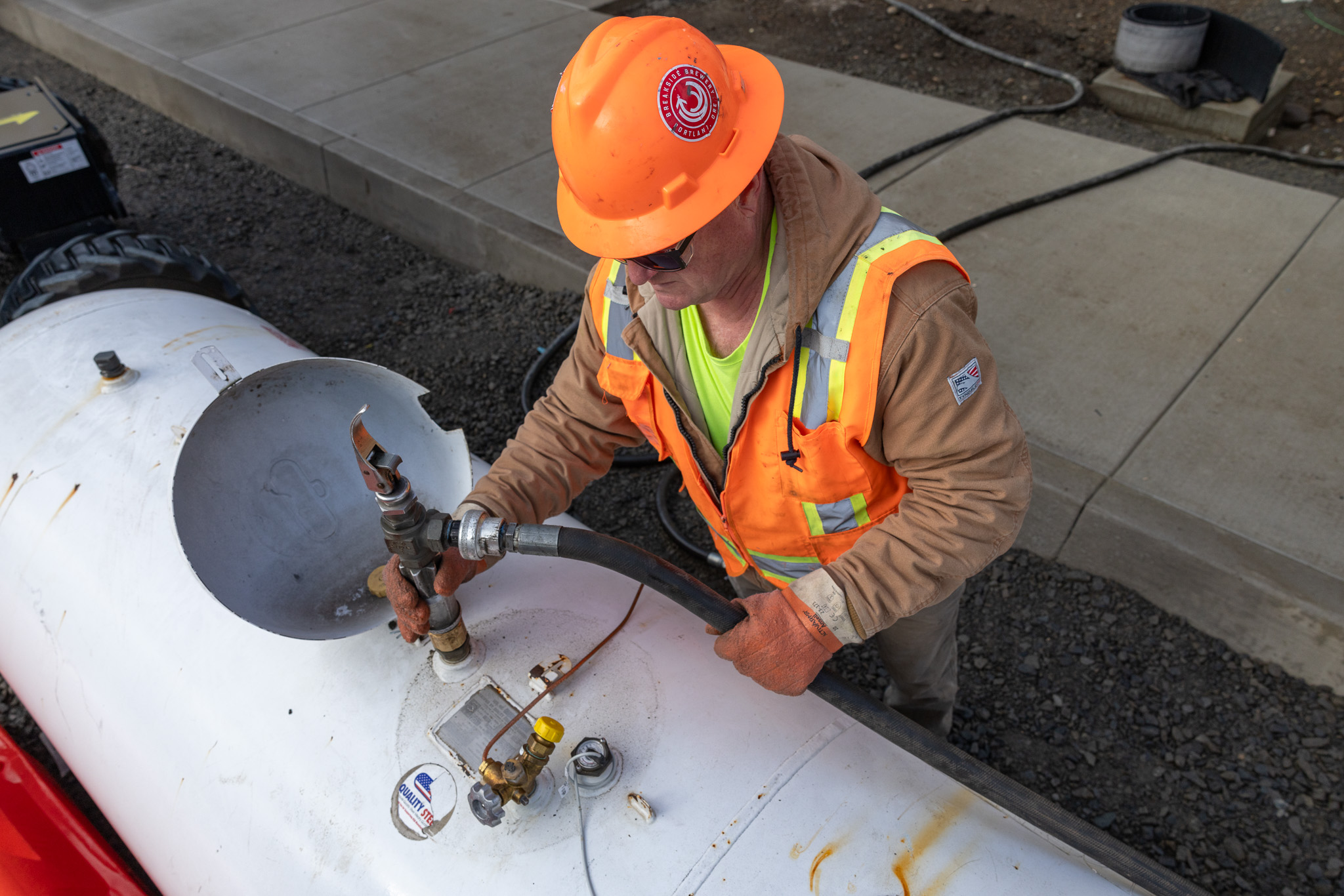
October 7 is National Propane Day: Prepare with Propane
Blog
Safe propane for your business
National delivery, local service
Tailored pricing to your business needs
When you think of propane, you might picture backyard grills or RV tanks. But for thousands of businesses across the U.S., propane is much more than that; it’s an efficient and reliable energy source that powers operations behind the scenes every day. If you’ve ever wondered what is propane gas and how it supports commercial industries, this post is your unplugged look at one of America’s most adaptable fuels.
What Is Propane Gas?
If you’ve ever asked yourself, “What is propane gas?,” you’re not alone. Propane is a hydrocarbon (chemical formula C₃H₈) (useia.gov) that exists as a gas at normal temperatures but is easily compressed into a liquid for transport and storage. It’s primarily produced as a byproduct of natural gas processing and crude oil refining.
Propane gas is stored under pressure in cylinders or bulk tanks and vaporizes into a usable gas when released. This quality makes it portable, stable, and ideal for off-grid use. Unlike natural gas, which requires pipeline infrastructure, propane can be delivered almost anywhere, giving businesses the flexibility to operate in remote or underserved areas.
Why Businesses Choose Propane
Commercial operations choose propane because it offers a rare combination of reliability, performance, and environmental responsibility. Some of the top benefits include:
Let’s take a closer look at how propane supports specific industries.
Manufacturing & Warehousing
Industrial and warehousing environments use propane to:
Because propane enters the combustion chamber as a clean-vaporized gas and has a high-octane rating with fewer residual deposits than many liquid fuels, equipment powered by propane often benefits from longer engine life and reduced maintenance demands. For businesses whose equipment must run continuously with minimal downtime, those clean-burning characteristics translate into real operational advantages. (AFDC)
Agriculture & Farming
Propane is deeply integrated into modern agriculture, where it is used to:
Because propane doesn’t degrade over time like diesel, it’s perfect for seasonal use. Farmers can store it through the offseason without worrying about quality loss.
Hospitality, Food Service & Catering
In hotels, restaurants, resorts, and event venues, propane helps ensure comfort and consistency:
Mobile food vendors also rely on propane as a lightweight, portable energy source that works anywhere, even when electrical hookups are unavailable.
Construction & Job Sites
Construction companies and contractors often choose propane for:
Because propane burns clean (AFDC), it’s safe for semi-enclosed spaces and helps maintain better indoor air quality on job sites.
Transportation & Fleet Operations
Businesses with transportation needs are increasingly turning to propane autogas to power fleet vehicles such as:
Propane autogas offers significant cost savings over gasoline and diesel (often 30–50% lower in fuel costs) and results in fewer emissions (USDE). Maintenance needs are also reduced, since propane burns cleaner and causes less engine wear.
For example, school districts switching from diesel to propane buses report lower total cost of ownership and quieter, cleaner rides for students.
Food & Beverage Manufacturing
Propane delivers reliable, efficient energy for:
Industrial & Specialty Applications
In addition to mainstream uses, propane also supports specialized commercial processes, including:
These applications demonstrate propane’s versatility across industries with high heat or process demands, making it a valuable alternative to heavier, dirtier fuels.
Propane and Sustainability Goals
Many companies today are focused on reducing their environmental impact without sacrificing performance. Propane helps support sustainability in several ways:
As more industries look for realistic ways to meet Environmental, Social, and Governance (ESG) targets, propane offers a practical and immediate path forward.
Final Thoughts
So again – what is propane gas? It’s more than a grill fuel. It’s a powerful, flexible, and cleaner-burning energy source that supports the needs of modern businesses. Whether you’re heating a facility, powering a fleet, drying crops, or keeping a construction project on track, propane delivers reliable performance with real operational and environmental benefits.
At DCC Propane, we’re proud to help businesses across industries unlock the potential of this versatile energy solution. If your business is exploring energy options, let’s talk about how propane can work for you.
To receive more news like this in your inbox, sign up to receive our newsletter: Fuel Forward